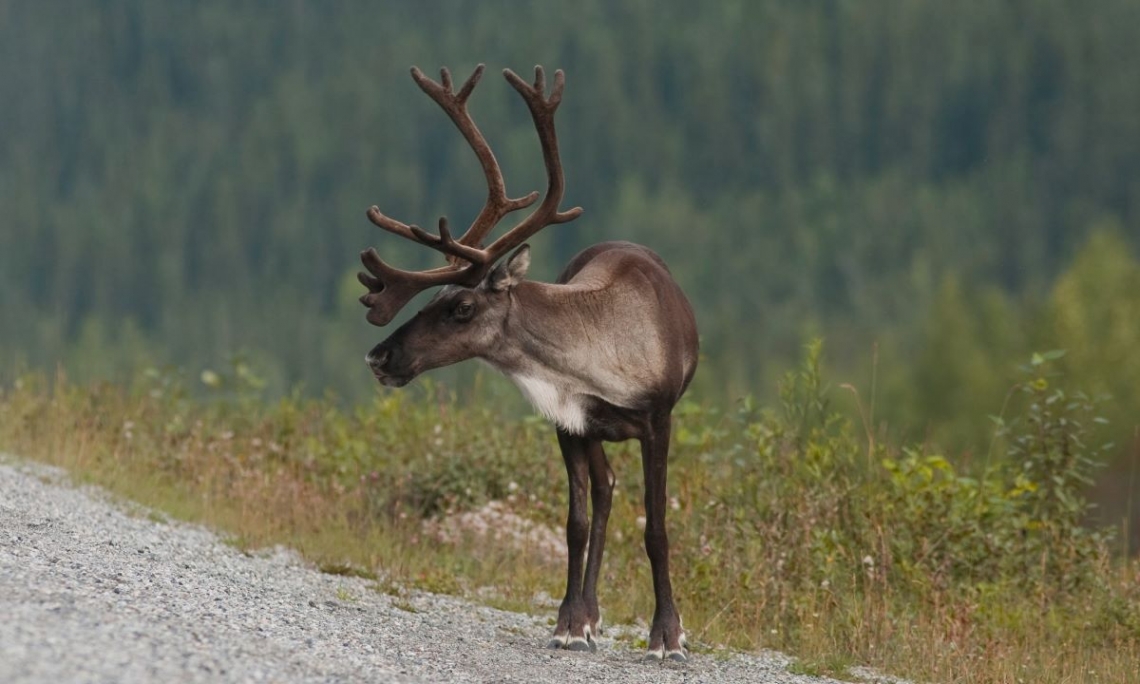

This study evaluates the effects of closing and dismantling forest roads on the behavior of caribou, their predators, and alternate prey. This study uses a large network of camera traps on treated and control forest roads. The number of individuals from each species counted on roadside cameras will be related to treatment, as well as several covariates such as local density of each species, time, recent weather conditions, and local characteristics of each road section.
Forest roads represent a major disturbance in several boreal caribou ranges across Canada. As such, the development of an effective method for restoring forest roads would be a significant gain, balancing the socio-economic impacts of sustainable resource management and land use with national commitments to conserve biodiversity. The proposed work could be used to restore roads created during past harvest operations, thus improving the quality of critical habitat for boreal caribou, or to identify new ways to develop forest road networks that take caribou habitat into account.

